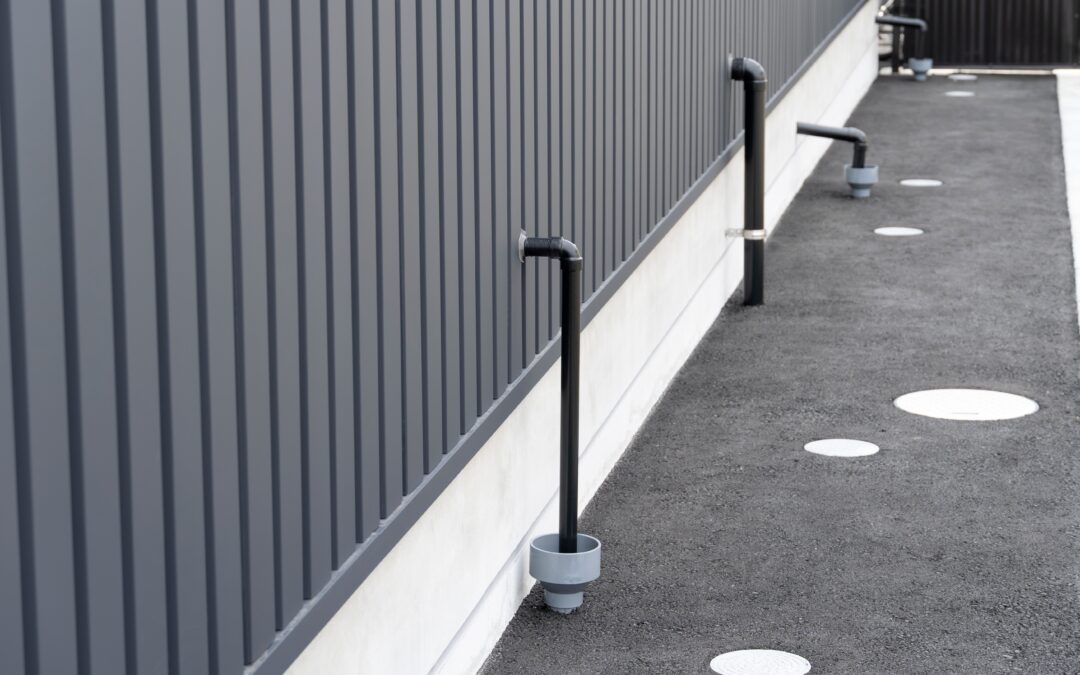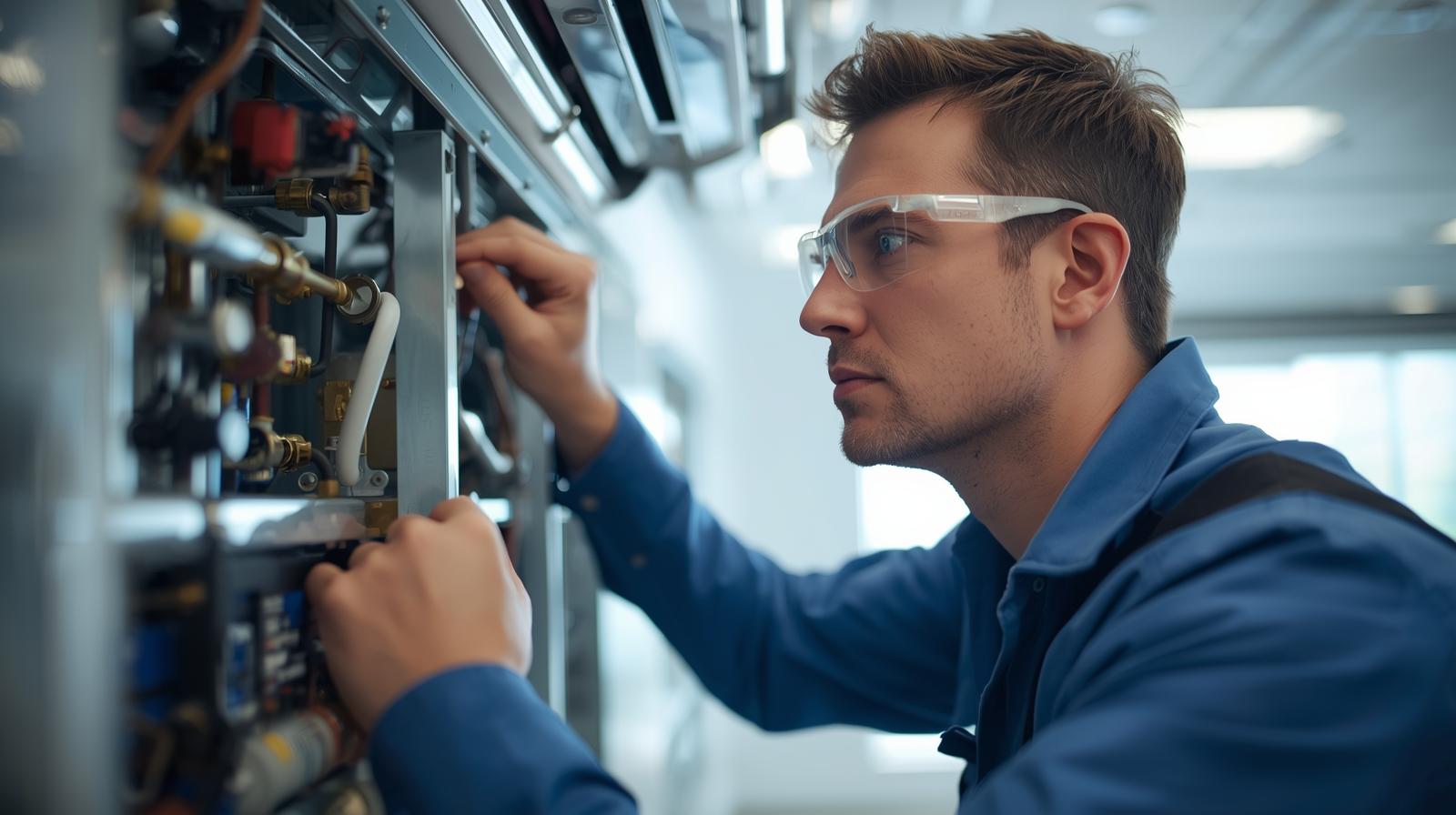It’s fundamental for commercial buildings to have a reliable plumbing system. One of the biggest threats to plumbing is external pipe corrosion. Corrosive pipes can lead to leaks and potential system failures, resulting in substantial repair costs and disruptions to daily operations. This post dives into some easy-to-follow best practices for preventing pipe corrosion in your commercial building. By implementing these steps, you’ll be able to extend the life of your plumbing and save your business from costly repairs.
Conduct Regular Water Quality Testing and Treatment
The first step in combating corrosion is to keep your water in check. Monitoring the water’s pH level is crucial to prevent corrosion. If your water has high acidity or contains minerals like calcium, it can cause faster corrosion. With regular water meter testing, you can spot any harmful substances early. Once you know what’s in the water, you can treat it accordingly, whether adjusting the pH or installing a water filtration system. Clean, balanced water is much less likely to cause damage to your pipes.
Choose Corrosion-Resistant Materials
The material of your pipes is vital to corrosion resistance. Some materials, such as galvanized steel, are more prone to corrosion than others. To avoid future problems, consider using materials naturally resistant to corrosion. For example:
- Stainless steel: Durable and highly resistant to corrosion, it’s perfect for commercial environments.
- Copper: Another solid option, although it can corrode under certain water conditions. It’s generally a good choice, though.
- PEX (cross-linked polyethylene): An increasingly popular choice for commercial plumbing, PEX is resistant to freezing and corrosion.
Older pipes, especially those made from materials like cast iron, are predisposed to corrosion and may need to be replaced with more corrosion-resistant materials Selecting the right material from the start can save you from expensive repairs later.
Protect Pipes with Coatings and Insulation
Adding protective coatings to your pipes shields against corrosion-causing factors, including moisture, chemicals, and temperature fluctuations. Coatings such as epoxy and polyurethane are particularly effective in preventing corrosion. Additionally, insulating your pipes is paramount—insulation helps keep pipes from getting too cold or too hot, thereby reducing the likelihood of condensation forming and accelerating corrosion. Protective coatings can also help prevent the growth of bacteria that contribute to corrosion, such as those causing microbiologically induced corrosion (MIC).
Ensure Proper Pipe Installation to Prevent Corrosion
How your pipes are installed is just as important as the materials used. Poor installation can create problems that result in corrosion. For instance, misaligned pipes or loose joints can trap water, causing rust or degradation over time. It’s also imperative to verify pipes are installed in the right environment—exposed pipes in areas with high moisture or extreme temperatures are more likely to corrode.
Avoid Galvanic Corrosion
Galvanic corrosion occurs when two different metals come into contact with each other, especially in the presence of water. The result? One metal corrodes much faster than the other. In commercial plumbing, avoiding mixing metals such as copper and galvanized steel is essential to creating ideal conditions for galvanic corrosion. If mixing metals is unavoidable, consider using dielectric unions or other fittings that prevent direct contact between dissimilar metals.
Understand Pipe Corrosion in Commercial Buildings
Corrosion occurs when pipes deteriorate due to exposure to elements such as moisture, air, chemicals, and oxidation. In commercial buildings, where pipes are exposed to high water usage and fluctuating temperatures, corrosion can occur more quickly. If left unchecked, possible damage could be weakened pipes, leaks, or even system failure. The earlier you spot the signs of corrosion, the less damage it will cause—and the less you’ll have to spend on repairs.
Types of Corrosion
Corrosion can manifest in various forms, each with unique characteristics and challenges. Understanding these types is crucial for effective prevention and maintenance.
- Uniform corrosion is the most common type of corrosion that occurs evenly across a metal surface. While it may seem less severe, it can trigger significant material loss over time.
- Pitting corrosion is localized and results in small pits or holes on the metal surface. These pits can penetrate deep into the metal, leading to cracks and potential pipe failure.
- Crevice corrosion occurs in areas with a gap or crevice between two metal surfaces that is often hidden and can be particularly insidious. It’s essential to prevent crevice corrosion by ensuring tight seals and proper installation.
- Galvanic corrosion happens when two different metals come into contact, especially in wet conditions. One metal corrodes at an accelerated rate, causing rapid deterioration. Using dielectric unions can help prevent galvanic corrosion.
- Stray current corrosion is caused by electrical currents flowing through the metal, often from nearby electrical sources. This type of corrosion can hasten damage, forming holes and cracks in the pipe.
By recognizing these forms, you can take targeted actions to prevent corrosion or other common commercial plumbing problems.
Causes of External Pipe Corrosion
Several environmental and situational factors can trigger external pipe corrosion. Understanding these causes can help you take proactive steps to mitigate them.
- Soil conditions: The type of soil surrounding your pipes affects corrosion. Acidic soils are acutely corrosive, whereas alkaline soils are less so. Regular soil testing can help you identify the risk and take appropriate measures.
- Moisture: High moisture levels from groundwater or humidity can accelerate corrosion. Confirming proper drainage and using moisture barriers can help protect exposed pipes.
- Stray currents: Electrical currents from nearby power lines or railways can flow through your pipes, causing stray current corrosion. This type of corrosion can be particularly damaging, contributing to rapid deterioration. Installing proper grounding and insulation can mitigate this risk.
Addressing these factors can significantly reduce the risk of external pipe corrosion.
Preventive Maintenance: Keep Things Running Smoothly
The key to avoiding big issues with your plumbing system is regular maintenance. Conduct periodic inspections to check for signs of corrosion, like rust or discoloration. Regular maintenance, such as hydro-jetting, helps prevent mineral buildup, which can promote corrosion. You should also clean your pipes of mineral buildup and replace worn-out parts. Regular maintenance helps identify issues early and ensures your system remains in good working order.
FAQs
Is blue corrosion on copper pipes dangerous?
Blue corrosion, also known as copper oxide, can weaken pipes over time if left unchecked. It’s important to monitor it and take action before it worsens.
Is green corrosion on copper pipes dangerous?
Green corrosion (verdigris) typically indicates that the copper is deteriorating. While it’s not always an immediate threat, ignoring it can eventually lead to leaks and pipe failure.
What causes pipe corrosion?
The most common causes of pipe corrosion include high water acidity, minerals, moisture, and poor installation. Environmental factors and incompatible materials also play a role. Regular maintenance and water testing are key to preventing it.
Protect Your Pipes with Commercial Plumbing Services from Enervise
Preventing external pipe corrosion in commercial buildings isn’t as complicated as it sounds. By regularly testing your water, choosing the right materials, applying protective coatings, ensuring proper installation, and maintaining your pipes, you can protect them from corrosion. In cases where corrosion is too advanced, pipe replacement may be necessary to prevent further damage.
A little proactive effort today will go a long way in avoiding costly repairs tomorrow. Don’t wait for pipes to fail, contact Enervise today to keep your plumbing in great shape for years.




